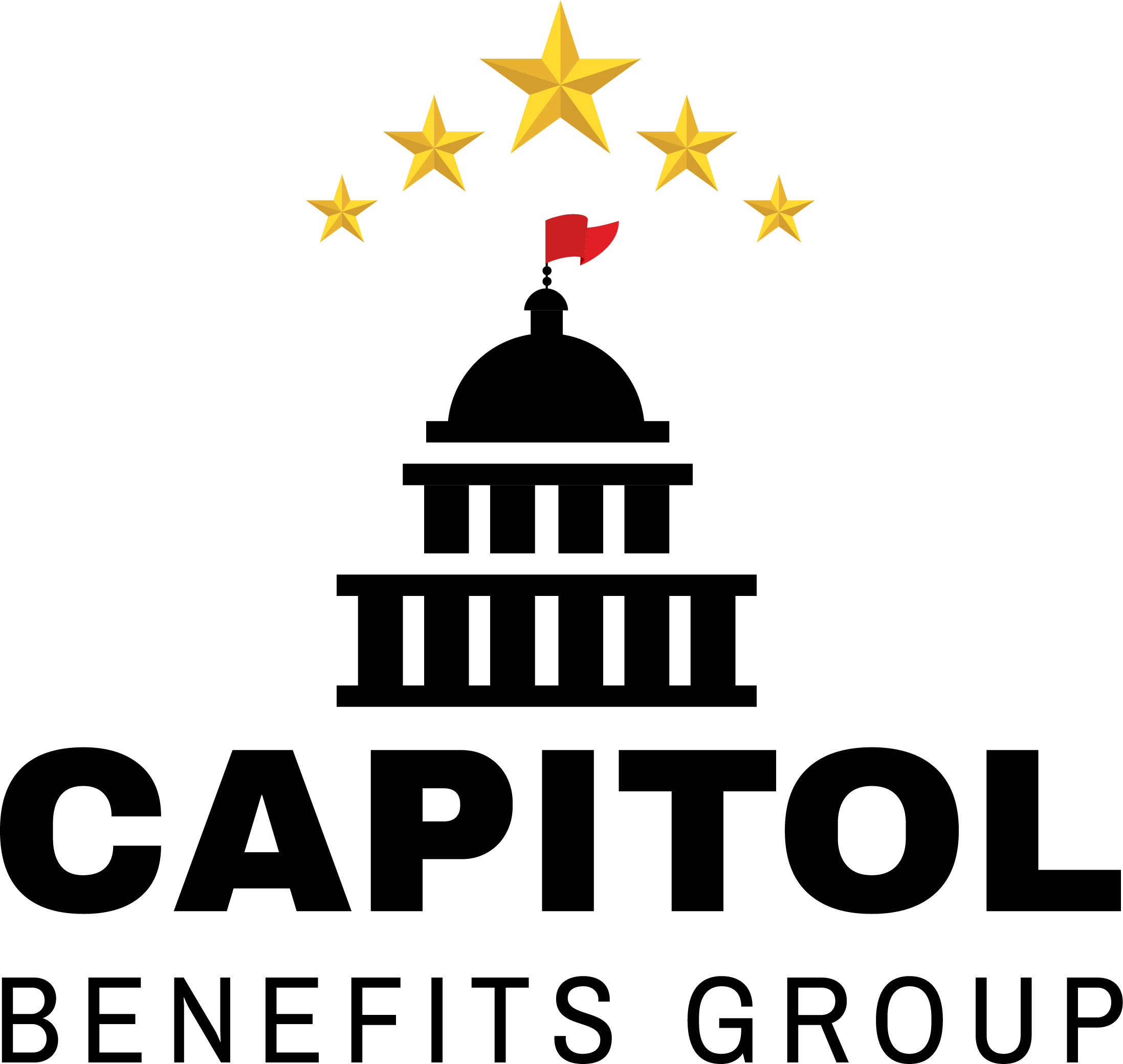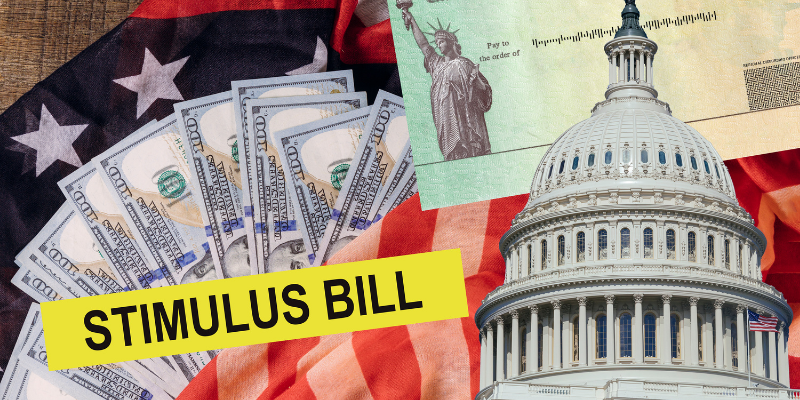News & Updates
Stimulus Bill with Ban on Surprise Medical Bills Signed Into Law
On Dec. 27, 2020, the 2020 Administration signed the Consolidated Appropriations Act of 2021 into law, a $900 billion stimulus bill that includes emergency economic relief, government funding and tax cuts. The bill also includes the No Surprises Act, a ban on surprise medical bills, which will take effect beginning in 2022.
Surprise Medical Bills
Surprise medical bills occur when patients unexpectedly receive care from out-of-network health care providers. For example, a patient may go to an in-network hospital for treatment, such as surgery or emergency care, but an out-of-network doctor may be involved in the patient's care.
Patients often cannot determine the network status of these providers, such as emergency room doctors or anesthesiologists, in order to avoid the additional charges. In many cases, the patient is not involved in the choice of provider at all.
No Surprises Act
The Act applies to surprise bills from doctors, hospitals and air ambulances. It prohibits these providers from billing patients who have health coverage for unpaid balances. Rather, providers will have to work with the group health plan or health insurance issuer to determine the appropriate amount to be paid by the plan or issuer, under the methodology provided in the Act.
The Dept. of Health and Human Services will work with the Depts. of Labor and the Treasury to issue regulations regarding this methodology and other requirements of the Act.
We will continue to keep you updated as information becomes available on the details of the law.
DOL Issues New Q&As About FFCRA Leave Requirements
The U.S. Dept. of Labor (DOL) has issued two additional Q&As about employee leave under the Families First Coronavirus Response Act (FFCRA).
Q&A 104 explains that employers are not required to provide employees with FFCRA leave after Dec. 31, 2020, even if an employee did not use all available leave in 2020. However, under the Consolidated Appropriations Act, 2021, employers may voluntarily decide to provide this leave. Employers that voluntarily provide leave can receive tax credits for leave provided until March 31, 2021.
Q&A 105 states that employees must be compensated for FFCRA leave taken before Dec. 31, 2020. Employees whose employers failed to pay them for FFCRA leave that occurred before Dec. 31, 2020, may file a complaint with the DOL's Wage and Hour Division within two years of the last action alleged to be in violation of the FFCRA. According to the Q&A, employees may also have a private right of action for violations.
HHS Issues Proposed Changes to the HIPAA Privacy Rule
Proposals Would Generally Strengthen Individuals' Rights to Access Their Own PHI. The Department of Health and Human Services (HHS) issued a proposed rule that would make certain changes to the Health Insurance Portability and Accountability Act (HIPAA) Privacy Rule. The proposed changes are primarily intended to support individuals' engagement in their care and remove barriers to coordinated care.
While many of the proposals primarily impact health care providers and their patients, a number of proposed provisions will also have an impact on employer-sponsored health plans. Specifically, the proposed rule would, among other things:
* Strengthen individuals' rights to access their own personal health information (PHI), including electronic information;
* Improve information sharing for care coordination and case management for individuals; and
* Modify the content requirements of the Notice of Privacy Practices to clarify individuals' rights with respect to their PHI and how to exercise those rights.
If finalized, the provisions in the final rule would take effect 60 days after publication. Covered entities would generally have 180 days from the effective date to comply.
EEOC Announces 2021 Schedule for EEO-1
On Jan. 12, 2021, the U.S. Equal Employment Opportunity Commission (EEOC) announced that it will open four equal employment opportunity (EEO) data collections in 2021. The agency had previously delayed EEO collections in May 2020 due to the coronavirus pandemic.
According to the announcement, EEO reporting will now resume according to the following schedule:
* April 2021: Private employers and federal contractors will be required to file 2019 and 2020 EEO-1 Component 1 data.
* July 2021: Certain public elementary and secondary school districts will be required to file 2020 EEO-5 data.
* August 2021: Certain unions will be required to file 2020 EEO-3 data.
* October 2021: State and local governments will be required to file 2021 EEO-4 data.
PCORI Fee Amount Adjusted for 2021
The IRS issued Notice 2020-84, which increases the Patient-Centered Outcomes Research Institute (PCORI) fee amount for plan years ending on or after Oct. 1, 2020, and before Oct. 1, 2021. Specifically, the PCORI fee amount for plan years ending on or after Oct. 1, 2020, and before Oct. 1, 2021, is increased to $2.66 multiplied by the average number of lives covered under the plan.
The IRS provided transition relief related to the 2020 PCORI fee calculation, due to the anticipated termination of the PCORI fee prior to its extension. This transition relief allowed issuers and plan sponsors to use any reasonable method for calculating the average number of covered lives for this period, in addition to existing methods, so long as it was applied consistently for the duration of the plan year. However, this transition relief was not extended for the 2021 plan year. As a result, plans and issuers must use one of the existing methods for calculating the PCORI fee for 2021.
As a reminder, employers of certain self-insured health plans are responsible for paying PCORI fees annually. Fees for plan years that ended in 2020 are due Aug. 2, 2021, since July 31, 2021, is a Saturday.
*The Fee is $2.66 per Covered Life for Plan Years Ending in 2021
The content herein is provided for general information purposes only and does not constitute, legal, tax, or other advice or opinions on any matters. This information has been taken from sources which we believe to be reliable, but there is no guarantee as to its accuracy.
HR Training
In case you missed it! Access the live recording and video from last month’s webinar where our ACA attorney partners provide an overview of Section 6055 and 6056 reporting (aka ACA reporting) for 2020. The discussion includes information on updated versions of required IRS forms and instructions, along with answers to common questions about the reporting process.
The target audience for this HR training session would be Applicable Large Employer (ALE) groups with 50 or more full-time equivalent employees. Other entities wishing to learn more about this ACA compliance requirement are also welcomed to attend.
Please check this HR Training Video: Click Here

